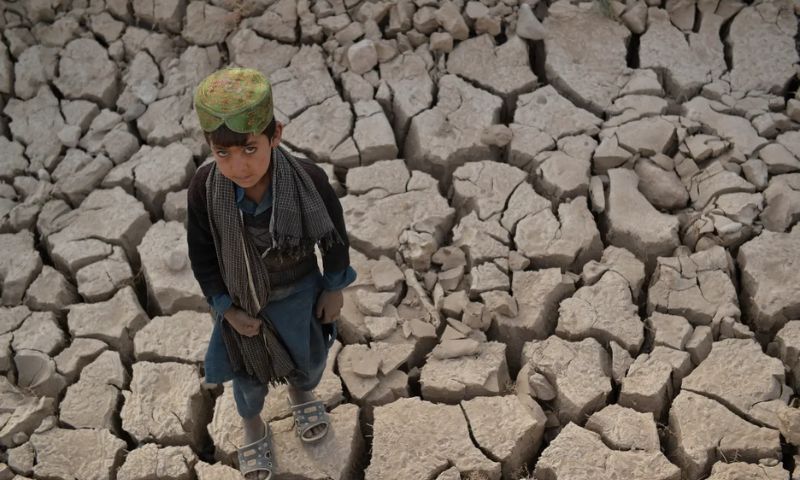UNITED NATIONS: The United Nations Assistance Mission to Afghanistan (UNAMA) has voiced deep concern over the increasingly detrimental effects of climate change within the country.
As the world grapples with the urgent need to combat this global crisis, Afghanistan finds itself particularly vulnerable and in dire need of international collaboration and action.
UNAMA’s Climate Change Officer has underlined the severity of the situation, emphasizing that Afghanistan is among the most vulnerable countries to climate change worldwide. The call for collective action and cooperation is paramount to addressing this pressing issue.
Officials from the Environmental Protection Agency have echoed these concerns, urging the international community to resume projects aimed at mitigating the devastating consequences of climate change in Afghanistan. These projects, with a total value of over $800 million, encompassed a wide range of initiatives focused on preserving biodiversity, safeguarding forests, and combating drought.
Charity Watson, the head of UNAMA’s Environmental Protection Division, reinforced the urgency of the situation during a visit to Kandahar, where the effects of climate change are increasingly evident. She stressed the need for a collaborative approach to ameliorating the adverse impacts of climate change in Afghanistan.
We are closely monitoring this issue. Climate change resilience in Afghanistan cannot be postponed, and we are exploring the possibilities of reactivating the suspended climate financing mechanism. While we cannot make promises, we are closely examining this matter, said Charity Watson.
The call for action extends beyond UNAMA’s walls. Afghan citizens are also sounding the alarm, urging the government to take more decisive steps in addressing climate change. Taqi Sadat, a resident of Bamyan, appealed to the international community and friendly neighbouring countries, particularly the United Nations, to cooperate in this endeavour.
Jawid Ahmad, a resident of Kandahar, pointed out the fundamental challenges they face: “One of the main reasons for this is the lack of water and seedlings that we face.” This underscores the immediate and tangible impact of climate change on the everyday lives of Afghan citizens.
Climate experts have identified a series of negative effects, including recurrent droughts, diminished rainfall, and declining groundwater levels, all attributed to the ongoing climate crisis. These manifestations of climate change not only threaten livelihoods but also exacerbate existing vulnerabilities in the region.
























